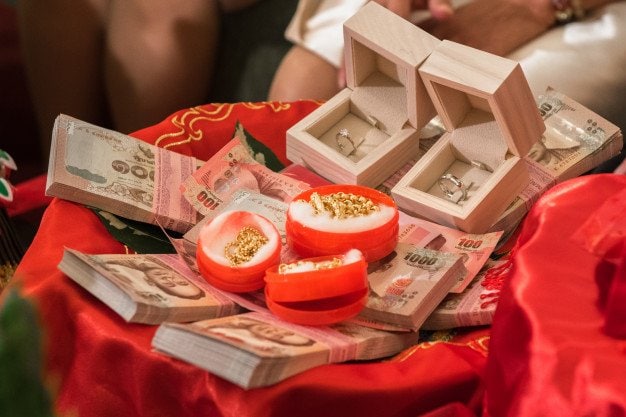“I MEASURE THE PROGRESS OF A COMMUNITY WITH THE DEGREE OF PROGRESS WOMEN HAVE ACHIEVED”- Dr.B.R Ambedkar
On 20th june, Keralites woke up hearing the tragic death of a 22 year old BAMS student, Vismaya V Nair, a native of Kollam who was found dead at her spouse’s residence. Two days before her demise, she had sent a whatsapp message to her cousin stating the atrocities she had to face from her husband, Kiran Kumar, a motor vehicle officer with regard to dowry. Since the issue came into limelight, social media platforms and news channels have been auditing the case on several grounds. However one has to realise that this is not an isolated case of dowry harassment, as there have been several dowry related deaths in the past and many women are still vulnerable to such harassments. Despite the number of legislations passed, let it be the dowry prohibition act of 1961 and the domestic violence act of 2005, women in India are still victims of harassment in the name of dowry.
There are several social evils which originated in the past and continues to take shape upto the present day and dowry system is one among them. The institution of dowry developed as a practice of returning all that was received by the bride to the bridegroom and since then, dowry has become deeply entrenched in the Indian society, thus making it an inevitable factor in Indian marriages. Marriages in India are no longer the union of two souls, but a business transaction to show off one’s status and prestige. The prevalence of dowry has led to the exploitation of the middle and lower middle class as they cannot afford to ‘pay’ a price for their daughters. Many such families save all the penny they earn merely for the sake of getting their daughters married as per the conditions laid down by society. There are innumerable instances in which families were shattered due to bankruptcy as they had to borrow loans to pay a huge amount as dowry.

The practise of dowry is also a factor in increasing the preference for being a male child, thus leading to practises like female infanticide and female foeticide as the girl child is many a times seen as a burden for the family. The girl child is often deprived of education and adequate nutrition as the only task assigned to them is that of performing the household chores because of which they get married at a very young age against their wishes. Though Indian society has achieved remarkable strides in manifold areas, not all mindsets are progressive in nature and many are still under the whims of conservative customs and traditions.
With the substantial growth of the Indian economy and society, the present trends with regard to dowry are such that the dowry price has increased manifold and as a result, there has been a proportionate increase in dowry harassment cases. In a recent study conducted among several Indian states, it was revealed that approximately 70% of the women who experienced physical violence are suffering in silence as they did not seek help or tell anyone about it and among the 20% who sought help, only a handful had approached the relevant authorities. Estimates provided by the National Commission for Women are certainly more depressing as more than 2300 complaints were filed from January to May 2021, hence suggesting that the pandemic has further aggravated the condition of women in Indian households. Home, which is often regarded as a safe haven, is turning out to be a prison for many.
Violence against women is not a recent phenomena and cases of dowry harassment are one among the many offences committed against women. Since time immemorial, women have been the subject of sexual harassment perpetuated by men who consider sexual harrasmment as a tool to supress the dissenting voices of women. The patriarchal nature of the society we live in has indeed reduced the status of women to that of the “second sex” as coined by Simone de Beauvoir and they are not treated in par with the male counterparts. Any kind of violence perpetrated against women is a violation of the fundamental rights enshrined in the constitution of India and numerous legislations have been enacted to safeguard women from offences.According to the Indian law, the offences related to dowry finds mention in four places as follows-

Cruelty to married women (section 498A IPC)
Dowry death (section 304B IPC)
Dowry prohibition act of 1961
Protection of women against domestic violence act of 2005
Under the dowry prohibition act, giving, taking or demanding dowry is an offence and under the 1983 amendment to the act, made for keeping a list of articles given in relation to marriage. Besides this, provision for inquest was made in the CrPC in case a woman died in unnatural circumstances within seven years of marriage and presumption of causing death was laid down in the Indian Evidence Act against the husband and his relatives or if a woman committed suicide or died within seven years of marriage and there was a demand for dowry soon before her death. If found guilty, the prescribed punishment can be imprisonment for minimum seven years or upto life.
Coming back to the case of Vismaya, if an educated person like her, hailing from a dominant caste (Nairs of Kerala) was not able to call out her abuser and seek help, is it even possible to imagine the plight of several thousands who belong to the weaker strata of this society? Apart from the legislations aforementioned, is there any possible panacea which exists to curb dowry related domestic violence and abuse?
A change can be brought in the existing perceptions conceived by society via scrutiny and correction. It is high time that the age old practises which deny women of their basic rights come to an end. Domestic abuse is often normalized in such a way it is often regarded as a right of the husband to abuse the partner physically, sexually, emotionally(mentally) and economically. The stigma and slut shaming associated with women who call out their abusers are even more daunting and the fear of being targeted often restricts them from seeking help. The sheer insensitivity in dealing with sexual harassment related issues has resulted in the ongoing subjugation faced by women. Since childhood, women are conditioned to be polite and docile, which has further curtailed their freedom. Purushasuktha in Manusmriti has explicitly laid down how women are expected to be obedient and live their lives as per the wishes of the father in the childhood, husband in the teenage and son in the old age. If you are someone who still expects women to be subservient to men, hey there did you miss your bus to the 21st century?

Dear parents, instead of saving money to marry off your daughters, please invest it on their education. Let them study as much as they wish to. Do not let society decide the deadline for your daughter’s marriage. Allow your children to explore the world, the opportunities that lay ahead and let them lead a life of their choice. Teach them to be financially independent and be self-sufficient at all times. Provide them the liberty to choose their partners, in case they wish to marry, instead of paying a dowry for a prospective groom. Make your children realise their worth and provide them the strength to walk away from toxic relationships and forget not to remember that divorced daughters are often better off than living daughters. Be aware of the rights that are guaranteed to each one living in this country and be an empowered citizen.
(P.S: Do not be that someone who speaks progressiveness in social media, but refuses to follow them within the household).